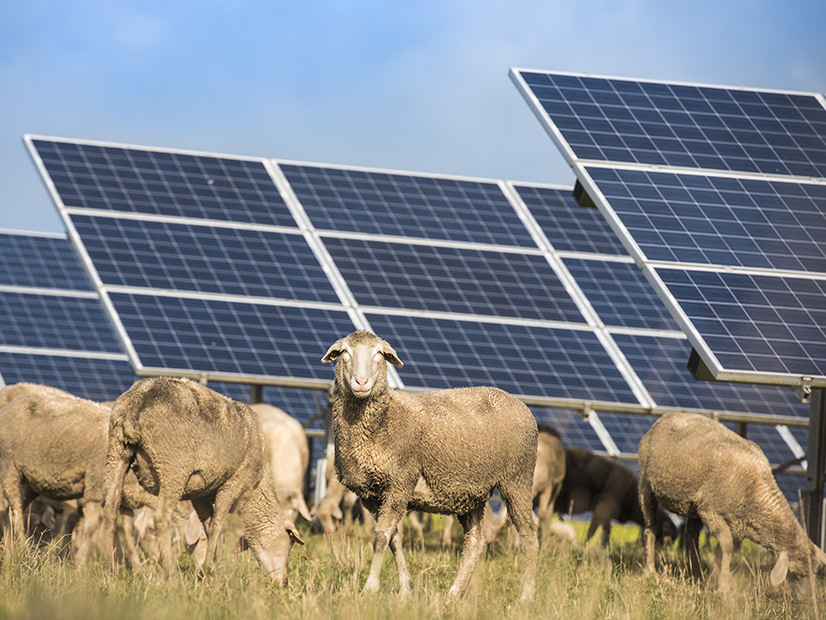
The agricultural commission in Northampton, Mass., a town with prime farmland in the Connecticut River Valley, opposes a new bill that would open up agricultural lands for solar incentives.
Solar development would be allowed on those lands under the bill (S590), as long the area continues to be used for agricultural purposes.
Fred Beddall, a full-time commercial farmer for 24 years in Northampton, said during a Sept. 22 hearing on the bill that a nearby town’s dual-use solar experiment didn’t work, and he doesn’t want to see the approach continue across the state through the bill.
The town of Northfield approved a 3-acre dual-use sheep farm on prime farmland, “and this is what we don’t want to see happen in Northampton because sheep pasture in general is a very low-value use of farmland,” Beddall said. But the farms were forced to convert to sheep pastureland because the plants did not grow productively under solar panels that were mounted 8 feet off the ground.
The amount of money farmers would make is about $15,000 in sales per year, Beddall testified. The rich soil is more profitable for farmers to grow crops, with a half-million dollars coming from about 80 acres of land, he said.
Already, thousands of acres of Massachusetts forests and farmlands have been developed for ground-mounted solar arrays. A Mass Audubon study found that almost a quarter of the land developed in the state over the past few years has been turned into solar farms, and meeting the state’s renewable energy targets could require clearing up to an additional 150,000 acres.
Climate scientists have recently pointed to the fact that undeveloped land and farmland have helped reduce global warming as carbon sinks, but if they continue to be developed, the atmosphere will warm faster than current climate modeling accounts for.
Turning farmland into sheep pasture also destroys local food systems and the jobs that go with it, Beddall said. People who benefit the Supplemental Nutrition Assistance Program in Massachusetts also rely on locally grown food in the state as part of their assistance.
“We think the whole dual-use policy needs to be seriously re-examined,” Beddall said. “It’s making a big mistake to take prime farmland and turn it into low-value sheep pasture.”
Pine Gate Renewables is also testing the use of solar panels on cranberry bogs as well as irrigation ponds in Carver, Mass.
Another bill (S571) under consideration in the Massachusetts legislature would create a commission to determine how farms can be best used to combat climate change, such as through composting.
“Composting benefits the climate in a few different ways, including by reducing GHGs at landfills by promoting the uptake of carbon dioxide in the leafy vegetation,” said the bill’s sponsor, Sen. Ed Kennedy (D), at the legislative hearing.
Composting diverts organic materials from landfills, where they could break down and be admitted into the atmosphere as methane, and puts it to use as fertilizer to promote healthier soil and growth of plants on the farms.
“This legislation would examine the roles our farms, and farmers can play in helping to keep carbon levels low and slow the impact of climate change in the state,” Kennedy said.


